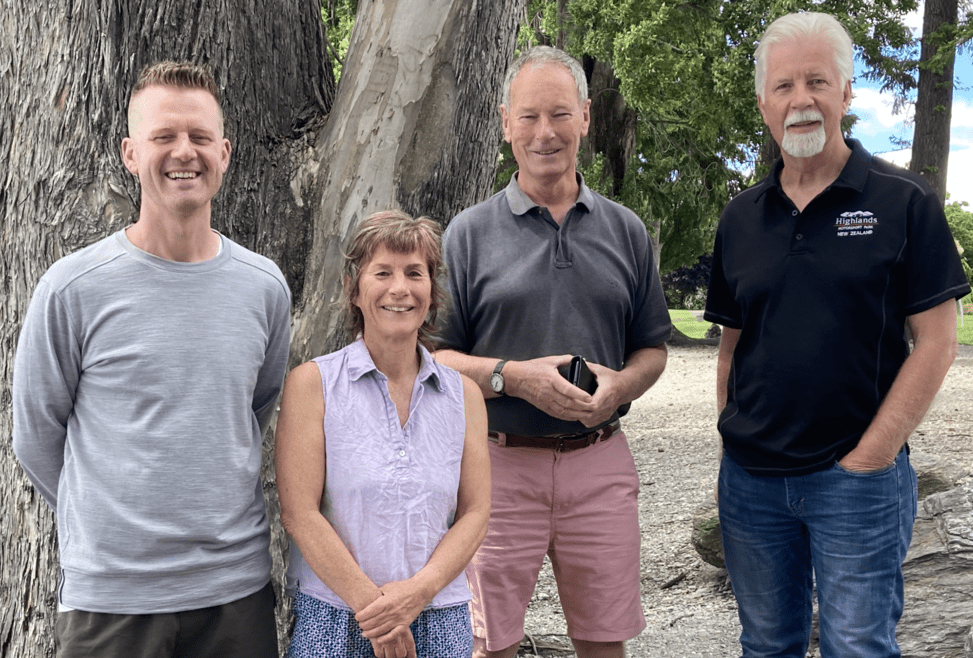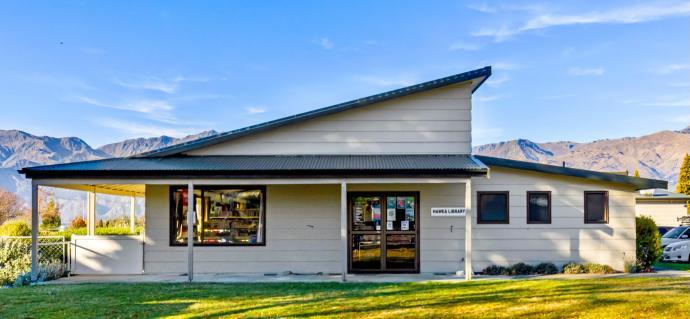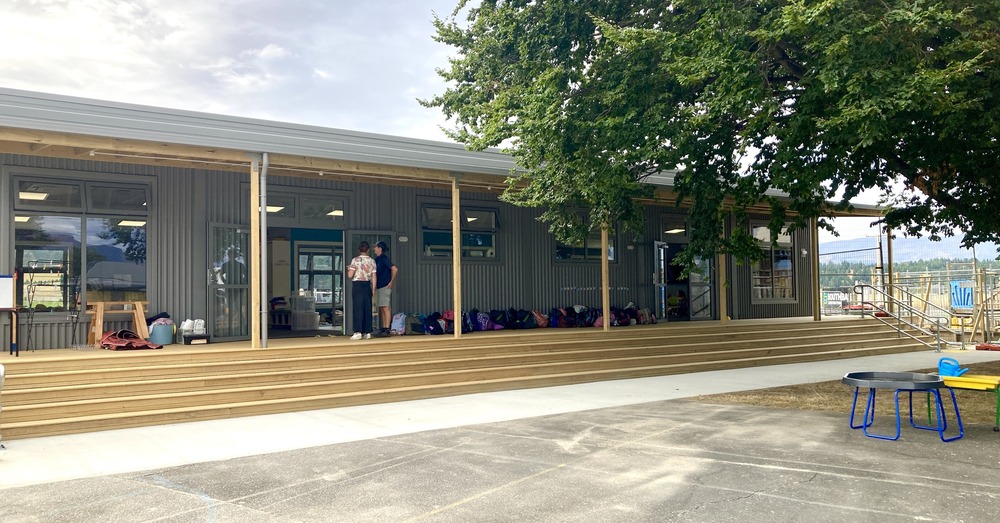Local groups issue ‘wake up call’ for emergency planning
Sue Wards
09 June 2024, 5:06 PM
 Two local community response groups are making progress on preparing for an emergency. PHOTO: Wānaka App
Two local community response groups are making progress on preparing for an emergency. PHOTO: Wānaka AppTwo community groups in the Upper Clutha are making practical progress in preparing for emergencies such as earthquakes.
The Upper Clutha faces a range of potential hazards, from flooding to the looming threat of an overdue Alpine Fault quake, and locals have been told the local community needs to be resilient as it is likely to be isolated for days following an emergency.
A year ago an Emergency Management Otago (EMO) presentation to the Wānaka Upper Clutha Community Board (WUCCB) “raised more questions than answers”, according to board chair Simon Telfer.
Simon told the Wānaka App he was concerned about the unreliability of FM radio to communicate information during an emergency, and “the lack of community awareness of where to physically go to seek welfare support in the aftermath of a natural disaster”.
EMO (part of the Otago Regional Council) works with Queenstown Lakes District Council (QLDC) to support the development of community response groups to ensure communities are prepared for emergencies. In the event of a natural disaster or emergency, the community groups (there are about 17 in Otago) will coordinate communication with EMO and circulate information to assist the community and other emergency operatives.
The groups - having received the message that there is no cavalry coming to save us - have taken on the task of community preparation. The Wānaka App caught up with Wānaka Community Response Group (WCRG) management committee member and spokesperson Geoff McLeay and Hāwea Community Response Group (HCRG) spokesperson Andre Meyer this past week, asking how preparedness progress is going.
Wānaka: Taking ‘a practical approach’
Geoff said the Wānaka group has “a lot going on”, including a meeting this coming Thursday (June 13).
“Of high priority is the continuation of our awareness building programme. This involves the three ‘Rs’: Resilience, response and recovery,” he said.
“We meet monthly and if you are interested in contributing we would love you to join us at one of our meetings. Our next meeting is this coming Thursday (June 13) at the Wānaka Presbyterian Community Church.”
Geoff said the group has taken almost two years to evolve. It has created nine sectors in Wānaka, including Albert Town.

The founding committee of the Wānaka Community Response Group (Geoff McLeay at right). PHOTO: Wānaka App
“Each sector has a very good number of members but we need to increase our numbers in Studholme, Central Wānaka and our rural areas. There is one sector coordinator in each sector, plus people who are allocated to be hub coordinators, who will operate in shifts,” he said.
The group is taking a “practical approach”, he said, with people training on radios, setting up and operation of the hub, engagement with all the agencies, establishing community resources, and managing the purchase of equipment and storage.
“We’re in the process of buying a purpose built trailer so we’re mobile. We don’t know where we’ll be needed, so we can move and provide support in the affected areas.”
“One of things we want to do is engage with schools to educate the children to get information back to the parents,” he said. “We’re looking at how we grow our membership in some areas.”
Referring to the annual ‘Clued Up Kids’ emergency training programme run by QLDC, Geoff said “we need clued up adults too”.
Also on the WCRG’s ‘to do’ list is liaising more with people in other response groups, Geoff said.
“We want to be able to help other areas; we’re ready to stand up.”
Geoff said there’s still a lot of work to be done and he welcomes anyone who is interested to email WCRG ([email protected]).
Follow the group and keep up to date here.
Hāwea: A ‘complete framework’ in place
HCRG spokesperson Andre Meyer said the group has “one voice, and two locations to provide community support from” - the community-owned Lake Hāwea Community Centre, and Hāwea Flat School.
The Hāwea area (from the north end of Lake Hāwea to the Luggate Red Bridge) is likely to be isolated following an emergency, and the HCRG has researched a wide range of hazards and scenarios, Andre said.
“We already have a complete framework for the emergency team to fit into it, and a reasonably clear plan [on our website].”
The group has invested in generators, satellite phones, Starlink, and has been planning and training with the local fire brigade.

The community-owned Lake Hāwea Community Centre is the centre point for the HCRG. PHOTO: Supplied
Luckily the community is already quite independent and has a handy population including retired medical professionals and working tradies, Andre said.
He said the community’s main challenge would be “distributed families”.
“Our biggest challenge is there is no employment in Hāwea, so no one is here during the day,” he said. “If an event happens during the business day we will have kids at MAC [Te Kura o Tititea Mt Aspiring College], kids at Hāwea Flat School, mum working in Wānaka maybe, and dad could be anywhere.”
“The [Hāwea Flat] school has a very good plan in place; it will be able to look after and feed the children for three days.”

Hāwea Flat School has plans in place to house and feed students for three days following an emergency. PHOTO: Wānaka App
Andre said the group is now looking at bringing in more people as neighbourhood contact points, and people with resources that could be shared in an emergency (people can make contact via [email protected]).
In addition to the HCRG’s main role of “feet on the ground”, it is “asking people to plan”, Andre said.
“We have new people coming to Hāwea every week. They won’t have the foggiest,” he said, adding that the HCRG wants to provide a “wake up call”.
Andre pointed to the group’s website and other useful information on the ORC Otago Gets Ready website which outlines what to do before, during, and after each type of emergency (earthquakes, floods, landslides, storms, tsunami and volcanoes).
Read more:
- The cavalry isn’t coming’: Emergency planning in the Upper Clutha
- Emergency management report ‘raises more questions than answers’







